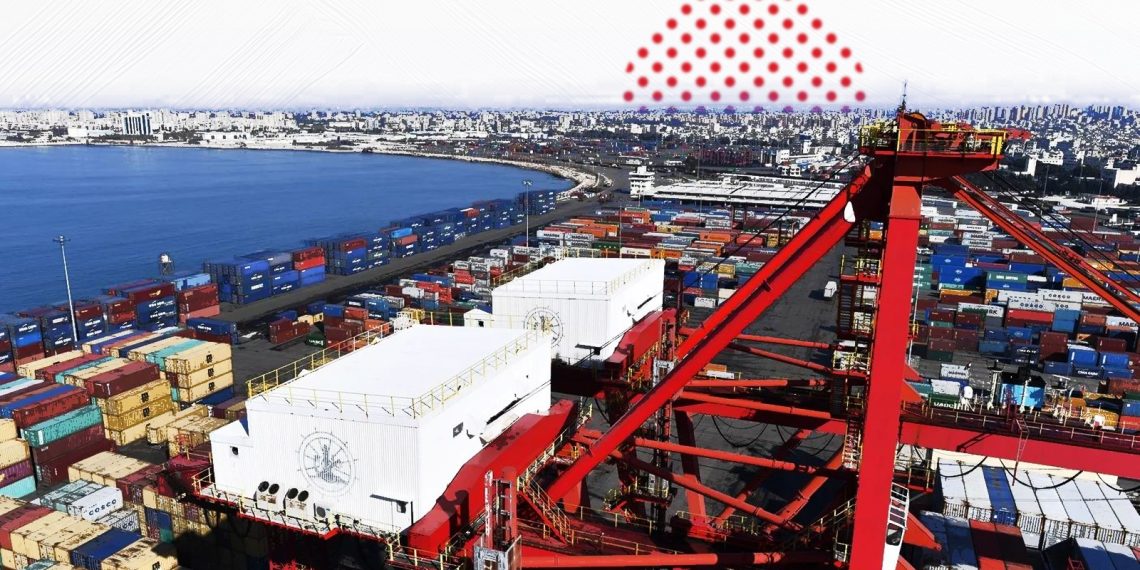In a significant signal of deepening ties, Axios reports that UAE businessman Khalaf Al Habtoor is leading a delegation to Damascus to explore investment opportunities in post-war Syria. The visit reflects a broader Emirati strategy to integrate economic engagement with geopolitical influence—particularly through investment in Syria’s reconstruction and key logistical infrastructure.
The Al Habtoor Group announced that its founder, Khalaf Al Habtoor, seeks to engage directly with the Syrian government to identify areas for collaboration. “Syria is a country rich in culture, history, and human capital,” Al Habtoor said in a statement. “We believe in its future potential and want to be part of its recovery through impactful projects that create jobs and opportunity.”
Tartus: A Strategic Gateway
This economic outreach comes amid an expanding Emirati footprint in Syria’s port infrastructure. In particular, the Port of Tartus has emerged as a focal point of this strategy. DP World, one of the world’s leading port operators, recently signed an $800 million deal with the Syrian government to develop and manage a multipurpose terminal at the port—long seen as a strategic hub on the eastern Mediterranean.
The agreement includes a full overhaul of Tartus’s infrastructure, expanding its capacity to serve as a regional logistics gateway linking the Levant with the Gulf and Asian markets. According to international relations expert Hassan al-Shaghel, the UAE is now the only Arab country capable of executing such a high-scale project, with DP World bringing global experience from its operations in over 100 ports worldwide.
Replacing Russia, Not Competing with It
Shaghel notes that the deal follows Syria’s cancellation of a previous port agreement with Russia, opening the door for new partners like the UAE. While this shift reduces Moscow’s economic presence in the eastern Mediterranean, it is not seen as direct competition but rather a recalibration of roles.
Tartus also fits into broader strategic corridors, including China’s Belt and Road Initiative—where the UAE is a key player—and the India–Middle East–Europe Economic Corridor (IMEC). According to Shaghel, investing in Tartus enhances the UAE’s geopolitical clout in the region, using Syria as a launchpad.
A Calculated Balancing Act
Despite rising tensions between Russia and the West, the UAE has managed to maintain balanced relations with all parties. This neutrality has allowed it to protect its economic interests and expand its regional presence. Syria, in turn, sees Emirati investment as a lifeline for attracting Arab and international capital, and rebuilding a war-torn economy.
Economic analyst Radwan al-Dabbas describes the DP World–Tartus agreement as a prime example of the intersection between logistics investment and political economy in a post-conflict environment. He says the deal will boost Syria’s foreign currency reserves, generate thousands of jobs, and stimulate local economic activity—particularly in construction, transport, and services.
Shifting Influence and Regional Dynamics
Crucially, Dabbas points out that terminating the prior Russian agreement marks a decline in Moscow’s economic sway, though its military presence at the Tartus naval base remains intact. Meanwhile, new players—such as the UAE, France (through CMA CGM’s contract at Latakia Port), and Turkey—are entering the scene, diversifying Syria’s economic partnerships.
The agreement also raises complex questions about sovereignty and power-sharing. As port concessions fall into the hands of various geopolitical actors—Latakia to France, Tartus to the UAE, and Idlib to Turkish-aligned entities—the risk of institutional fragmentation grows, potentially impeding national economic unification.
Dabbas concludes that while the Tartus deal marks a qualitative leap in Syria’s integration into regional trade networks, its long-term success will hinge on effective governance, political stability, and careful management of foreign influence—at local, regional, and international levels.
This article was translated and edited by The Syrian Observer. The Syrian Observer has not verified the content of this story. Responsibility for the information and views set out in this article lies entirely with the author.


